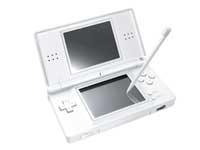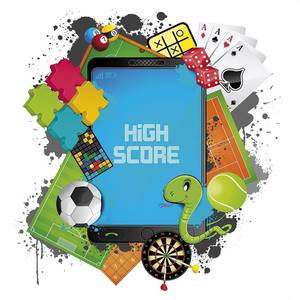Brain Training Games
2008/03/23 Galarraga Aiestaran, Ana - Elhuyar Zientzia

Recently games for the brain are fashionable. The speed in the processing of information, memory, attention, logic... are games that allow to address different aspects of intelligence and, according to the authors, it is enough to devote a daily time to stimulate the brain and make it increasingly intelligent.
It seems that consumers believe in the effectiveness of these games or just seem fun because they are having a lot of success. Thus, while in the United States a business of 2 million dollars was created in 2005, last year it was estimated at 80 million dollars. That is, it has grown 40 times in two years. The most popular Japanese game has sold 15 million copies for different media, especially for game consoles.
The games have a similar basis. According to its authors, the brain is similar to muscles; with proper training it increases and the more you train, the easier and faster you do the exercises. They say it is scientifically proven.
Scientific foundations

To demonstrate the scientific basis of games for brain formation, among others, a research conducted in 1986 with American nuns is mentioned. The study was conducted by neurologist David Snowdon. He traveled to the convent of the nuns of the order of the Sisters of Saint Mary, where he studied the 678 nuns who lived. Although they were all over 75 years old, they had their heads very well. Snowdon saw that among them problems such as senile dementia, Alzheimer's, were not as common as in people of that age, and analyzed all the factors that could influence the mental health of nuns: diet, customs, intellectual exercise...
He was surprised to see that nuns used to play chess. Snowdon concluded that thanks to those games they had such good heads. In his opinion, games contributed to the renewal and recovery of neurons and protected the brain from aging.
More research has been done, such as with taxi drivers in London, in which researchers discovered that as they learned the streets and routes of the city, the hippocampus increased. This is the part that takes care of the memory of the space.
Apps

In line with this type of research, neurologists created exercises to help older people with loss of intelligence or mental health problems. These exercises manage to cushion the loss of old age or improve the attitude of children with attention difficulties, among others. Now gaming companies have taken a step further and launched exercises for all consumers.
However, many experts question the effectiveness of these games. According to them, it cannot be denied that the use of the brain protects from damage, but such games are not essential. Cross-words, sudoku or other hobbies, reading a good book, learning a language, having an exciting debate with friends... can be so beneficial and better than playing games they have created for video games. So, while these types of games allow brain use, don't expect great miracles.
Published in 7K.

Gai honi buruzko eduki gehiago
Elhuyarrek garatutako teknologia






